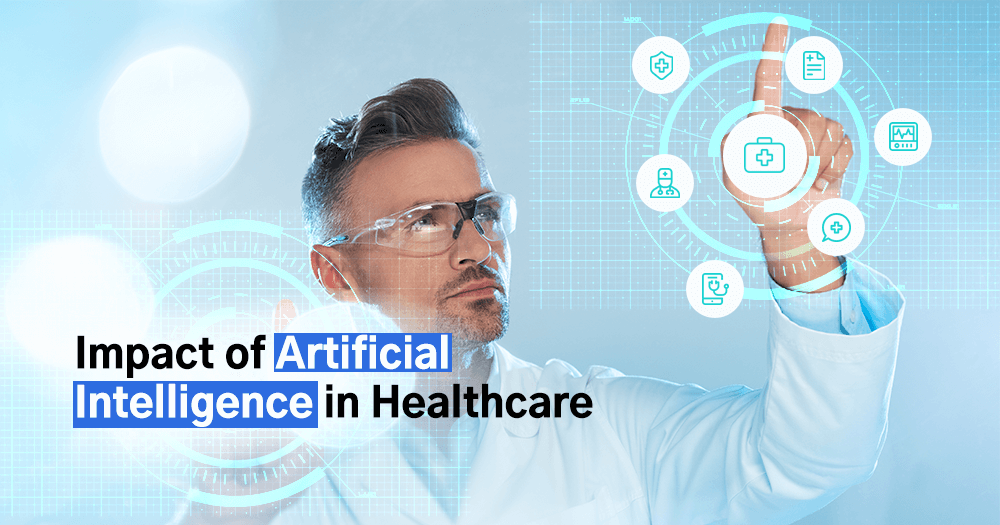
In recent years, Artificial Intelligence (AI) has emerged as a revolutionary force in the healthcare sector, transforming the way we approach and manage our well-being. This article delves into the profound impact of AI on healthy living, exploring its applications, benefits, and the transformative changes it brings to the healthcare landscape. In this article you will learn about AI in Health.
I. Understanding AI in Health
Defining AI in Healthcare
Understanding the core concepts of AI in healthcare is crucial. Explore the definition and how AI technologies are integrated into the healthcare ecosystem.
II. The Role of AI in Health Monitoring
Wearable Technology and Real-time Insights
Explore the rise of wearable devices and smart sensors, detailing how they collect real-time data on vital signs, physical activity, and sleep patterns, and how AI processes this information to provide personalized insights.
III. Disease Prevention through AI
Predictive Analytics for Proactive Healthcare
Examine the use of predictive analytics in assessing the risk of specific health conditions based on genetic and lifestyle factors. Discuss how this proactive approach to healthcare is reshaping the traditional model.
IV. AI in Health: Medical Diagnostics
Advanced Image Recognition and Pattern Analysis
Explore the advancements in AI-driven medical diagnostics, particularly in image recognition and pattern analysis. Discuss how these technologies enhance the accuracy and efficiency of disease diagnosis.
V. Personalized Treatment Plans
Tailoring Healthcare with Precision
Delve into the personalized treatment plans enabled by AI. Discuss how AI considers individual genetic variations, responses to medications, and lifestyle factors to shape treatment strategies that are more effective and tailored to each person.
VI. Challenges and Ethical Considerations
Navigating the Ethical Landscape
Address the challenges and ethical considerations associated with the integration of AI in health. Discuss concerns such as data privacy, algorithm bias, and the need for responsible AI deployment.
VII. Future Trends and Innovations
Emerging Frontiers in AI and Health
Explore the potential future trends and innovations in AI and health, discussing the continuous evolution of technology and its potential impact on healthcare.
Summarize the key points discussed in the article, emphasizing the transformative nature of AI in promoting healthy living.
In conclusion, the integration of Artificial Intelligence (AI) in healthcare has revolutionized healthy living by transforming healthcare practices. From real-time health monitoring and proactive disease prevention to accurate medical diagnostics and personalized treatment plans, AI has the potential to significantly improve healthcare outcomes. However, ethical considerations and challenges surrounding data privacy and algorithm bias must be addressed to ensure responsible AI deployment. As technology continues to evolve, AI is poised to shape the future of healthcare, offering innovative solutions and advancements that promote a healthier society.
Key takeaways
- AI in Health: The article highlights the revolutionary impact of Artificial Intelligence (AI) on the healthcare sector and its transformation of the approach to well-being.
- Understanding AI in Health: The article emphasizes the importance of understanding the core concepts of AI in healthcare and how AI technologies are integrated into the healthcare ecosystem.
- The Role of AI in Health Monitoring: The rise of wearable devices and smart sensors is explored, showcasing how they collect real-time data on vital signs, physical activity, and sleep patterns. AI processes this information to provide personalized insights.
- Disease Prevention through AI: Predictive analytics is discussed as a proactive approach to healthcare, assessing the risk of specific health conditions based on genetic and lifestyle factors. This reshapes the traditional model by enabling early intervention and prevention.
- AI in Health: Medical Diagnostics: AI-driven medical diagnostics, particularly in image recognition and pattern analysis, are highlighted for their ability to enhance the accuracy and efficiency of disease diagnosis.
Checkout our blog on: Discovering Hope: Advancements in Visceral Hypersensitivity Relief